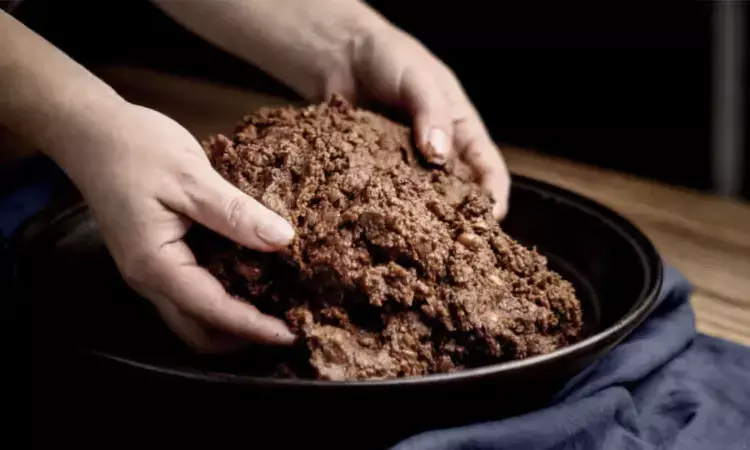- Home
- Medical news & Guidelines
- Anesthesiology
- Cardiology and CTVS
- Critical Care
- Dentistry
- Dermatology
- Diabetes and Endocrinology
- ENT
- Gastroenterology
- Medicine
- Nephrology
- Neurology
- Obstretics-Gynaecology
- Oncology
- Ophthalmology
- Orthopaedics
- Pediatrics-Neonatology
- Psychiatry
- Pulmonology
- Radiology
- Surgery
- Urology
- Laboratory Medicine
- Diet
- Nursing
- Paramedical
- Physiotherapy
- Health news
- Fact Check
- Bone Health Fact Check
- Brain Health Fact Check
- Cancer Related Fact Check
- Child Care Fact Check
- Dental and oral health fact check
- Diabetes and metabolic health fact check
- Diet and Nutrition Fact Check
- Eye and ENT Care Fact Check
- Fitness fact check
- Gut health fact check
- Heart health fact check
- Kidney health fact check
- Medical education fact check
- Men's health fact check
- Respiratory fact check
- Skin and hair care fact check
- Vaccine and Immunization fact check
- Women's health fact check
- AYUSH
- State News
- Andaman and Nicobar Islands
- Andhra Pradesh
- Arunachal Pradesh
- Assam
- Bihar
- Chandigarh
- Chattisgarh
- Dadra and Nagar Haveli
- Daman and Diu
- Delhi
- Goa
- Gujarat
- Haryana
- Himachal Pradesh
- Jammu & Kashmir
- Jharkhand
- Karnataka
- Kerala
- Ladakh
- Lakshadweep
- Madhya Pradesh
- Maharashtra
- Manipur
- Meghalaya
- Mizoram
- Nagaland
- Odisha
- Puducherry
- Punjab
- Rajasthan
- Sikkim
- Tamil Nadu
- Telangana
- Tripura
- Uttar Pradesh
- Uttrakhand
- West Bengal
- Medical Education
- Industry
Korean Food Doenjang Promising in Alleviating Menopausal Syndrome and Combating Obesity: Clinical Trial

South Korea: In a groundbreaking randomized, double-blind clinical trial, researchers have uncovered promising evidence supporting the efficacy of Doenjang, a traditional Korean fermented food, in relieving symptoms of menopausal syndrome and combating obesity. The study, published in the journal Nutrients, sheds light on the potential health benefits of this ancient culinary staple.
The study finds that traditional doenjang more effectively eases menopause symptoms compared to commercially produced doenjang. Among the tested doenjang samples, the one with the least beneficial bacteria produced the strongest result.
Doenjang paste is one of the ancient fermented foods in Asia that dates back over 2,000 years. It significantly predates miso paste, which first became popular in China before returning to Japan.
While miso is made from peeled soybeans that ferment over weeks, doenjang matures from several weeks to two years. It comprises unpeeled, fermented soybeans. Its subtly tangy, strong umami flavor has undertones of earthiness and nuttiness. Miso, made from peeled soybeans, is not as thick and is milder and sweeter.
Like miso, doenjang is typically salty, since it is fermented with salt, which can be a cardiometabolic concern. Both doenjang and miso can serve as the basis of broths and flavoring in various dishes.
Against the above background, A Lum Han, Department of Family Medicine, Wonkwang University Hospital, Iksan, Republic of Korea, and colleagues aimed to compare the effectiveness of traditional Doenjang and commercial Doenjang in menopausal women. They also compared whether Doenjang has a better effect if the number of beneficial microbes is higher.
The analyses included the following groups: traditional Doenjang containing either a high dose (HDC; n = 18) or low dose (LDC; n = 18) of beneficial microbes and commercial Doenjang (CD; n = 20).
The hematological changes and Kupperman index were examined before and after using Doenjang pills. Doenjang effects on body composition and obesity were studied before and after ingestion. Lastly, the researchers compared microorganisms and short-chain fatty acid changes in the stool.
The study led to the following findings:
- The Kupperman index decreased after Doenjang consumption in all three groups, with the greatest decrease in the LDC group.
- Only the groups that took traditional Doenjang pills exhibited reduced LDL cholesterol.
- There were no changes in obesity and inflammation-related indicators.
- There was a decrease in the number of Firmicutes associated with obesity in the CD group, but the number of Bacteroidetes increased in the HDC and CD groups.
"Our findings highlight the potential of Doenjang as a natural remedy for menopausal symptoms and obesity management," the researchers wrote.
In conclusion, traditional Doenjang is more effective in easing menopausal syndrome than commercial Doenjang. There is a need for further research on the anti-obesity effect or changes in microbiomes and short-chain fatty acids in feces.
Reference:
Han, A. L., Ryu, M. S., Yang, H., Jeong, D., & Choi, K. H. (2023). Evaluation of Menopausal Syndrome Relief and Anti-Obesity Efficacy of the Korean Fermented Food Doenjang: A Randomized, Double-Blind Clinical Trial. Nutrients, 16(8), 1194. https://doi.org/10.3390/nu16081194
Dr Kamal Kant Kohli-MBBS, DTCD- a chest specialist with more than 30 years of practice and a flair for writing clinical articles, Dr Kamal Kant Kohli joined Medical Dialogues as a Chief Editor of Medical News. Besides writing articles, as an editor, he proofreads and verifies all the medical content published on Medical Dialogues including those coming from journals, studies,medical conferences,guidelines etc. Email: drkohli@medicaldialogues.in. Contact no. 011-43720751


